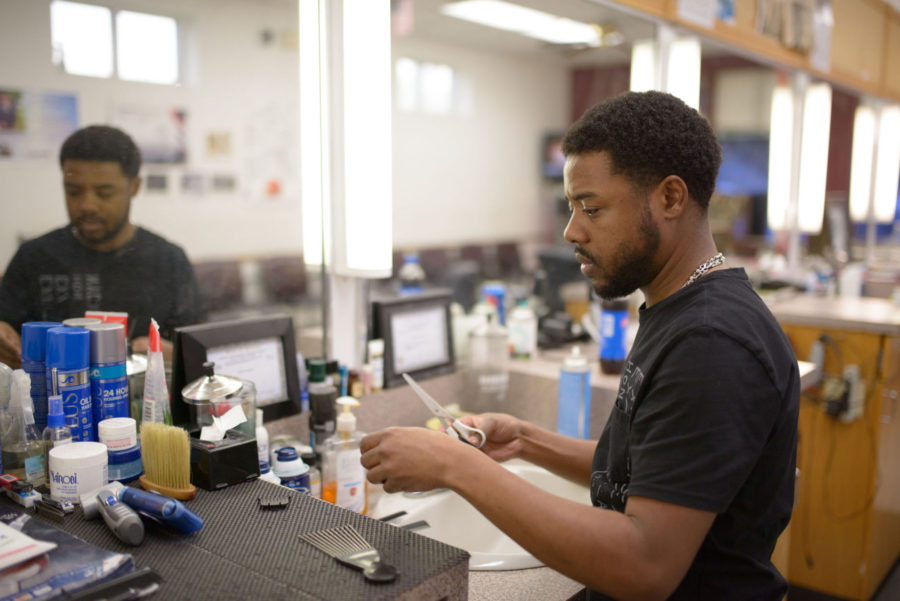Champaign continues to lose black-owned businesses
May 11, 2015
Contagious, hypnotic music kissed the streets of Champaign in the 1950s in what some remember as an electrifying, soul-consuming environment that lured many African-American Champaign residents out of their homes and into the busy streets for the night.
“The Black Downtown,” known today as North First Street, was a space where African-Americans unwound at a time when discriminatory practices were in place and they weren’t welcome anywhere else.
“It would light up,” said Joe Taylor, Champaign resident and former owner of Rose and Taylor Barber Shop in Champaign. “The bars would play Sam Cooke, Etta James and Billy Holiday. It was always a good time.”
“The Black Downtown” featured bars, restaurants, cleaners, hair and beauty shops, such as the Rose and Taylor Barber Shop, which opened in 1962. Taylor said he retired from the shop in 2013, but he still cuts hair for close family, friends and past clients at his home.
According to e-Black Champaign-Urbana, a platform that compiles documents of African-American history in Urbana-Champaign, the African-American population increased from 1,700 in 1940 to 3,000 in 1950. As a result, there was a need for African-American businesses.
Get The Daily Illini in your inbox!
“It was a place for African-Americans to come together … no matter what walk of life, or level of income,” said William Jones, current owner of Rose and Taylor Barber Shop. “We still have a handful of those businesses left in Champaign, and they still remain true to their roots.”
Taylor said the peak of “The Black Downtown” came in the early to mid 1960s, as businesses became lucrative and successful. However, he said some businesses failed to adapt with the times and suffered economically.
For many barbers, their clientele was predominantly black, Jones said, but after the Civil Rights Movement and the continuous efforts of the University to integrate the African-American community, some shops had to diversify their clientele if they wanted to survive financially, especially with several similar businesses in the area competing with one another.
“The black businesses died out because of how difficult it was to get loans to keep the businesses running,” said Martel Miller, who grew up near “The Black Downtown” and is now a Champaign community member and activist. “I think the city didn’t work with the owners as much as they could have or do for other businesses.”
Yet, as black businesses began failing, a clear division segregated what was once “The Black Downtown” from the rest of Champaign, specifically the campus community, said Miller.
Miller and Terry Townsend, Champaign activist, recently wrote a letter asking the Board of Trustees not to renew Chancellor Phyllis Wise’s contract for next year, partially because of how they feel the University treats the African-American community in Champaign. As a community activist, Miller said he is greatly affected by the stigma that is associated with crossing University Avenue and the stereotypes that follow local Champaign residents. Today, there are only four black business left in “The Black Downtown” on North First Street, according to Miller and Jones.
Taylor said seeing black businesses coming and going was difficult, but he accounts luck, resilience and creativity to the success of a business.
“You have to be innovative and fresh to own a black business in Champaign,” Taylor said.
perryma2@
dailyillini.com







